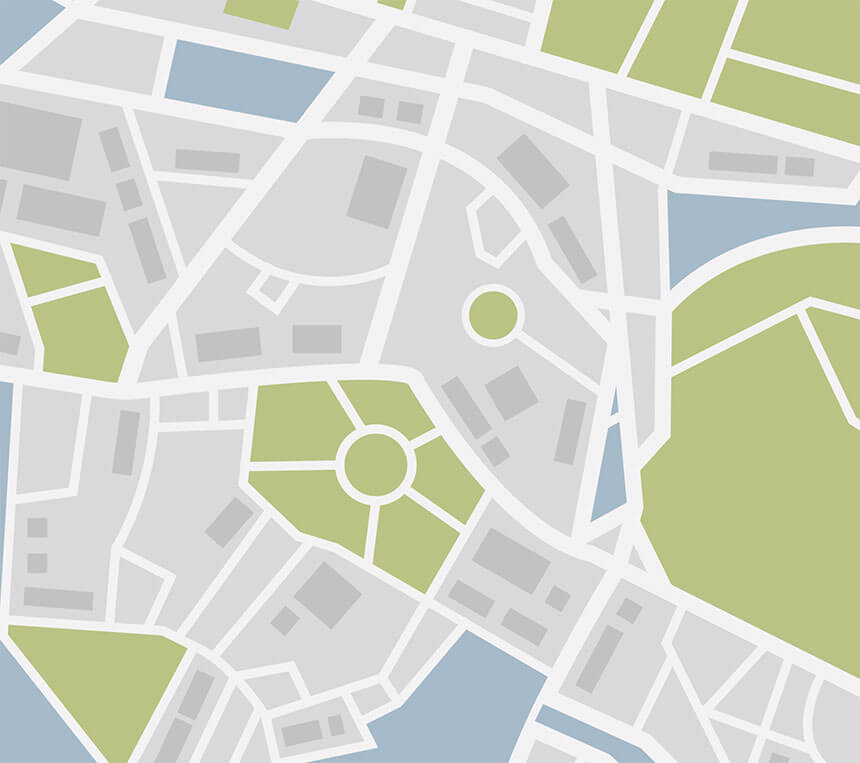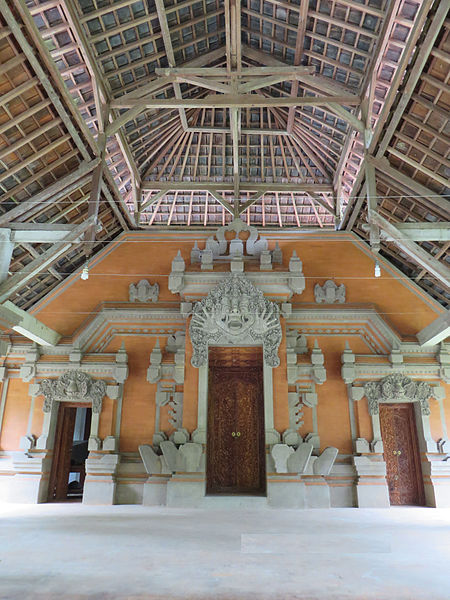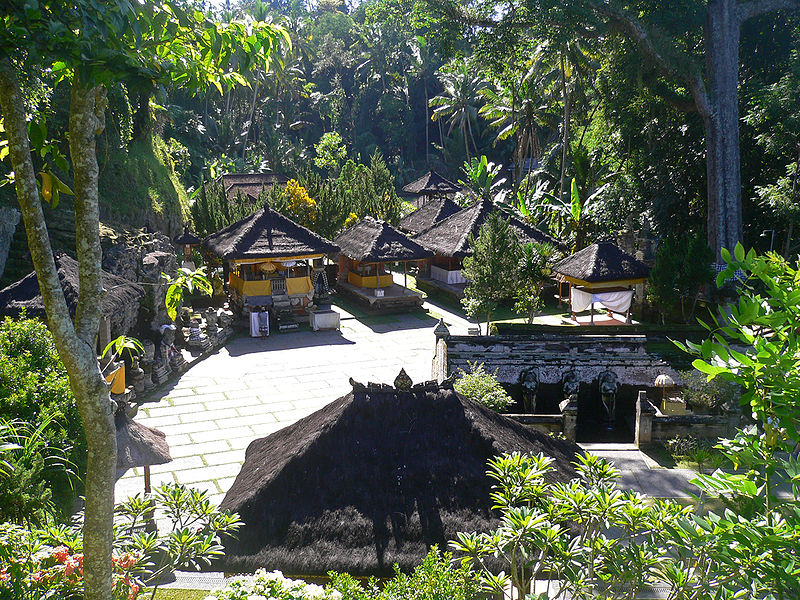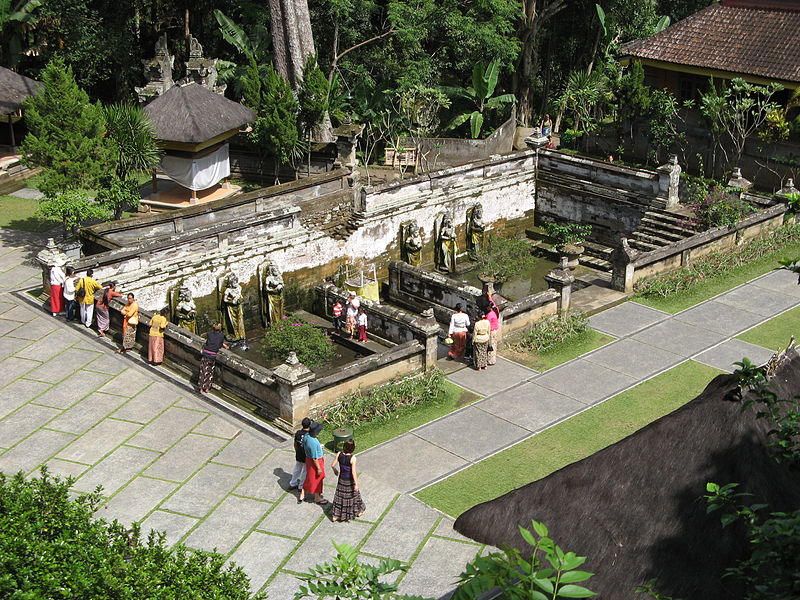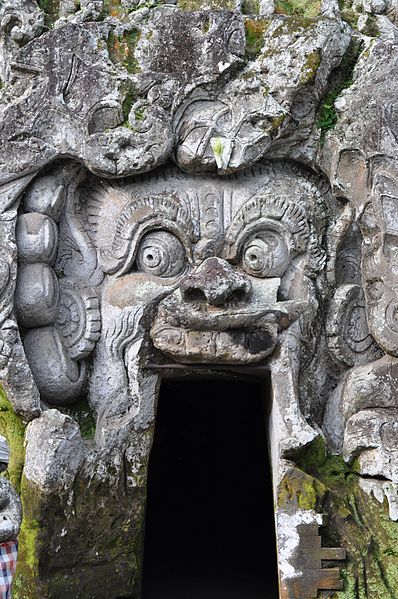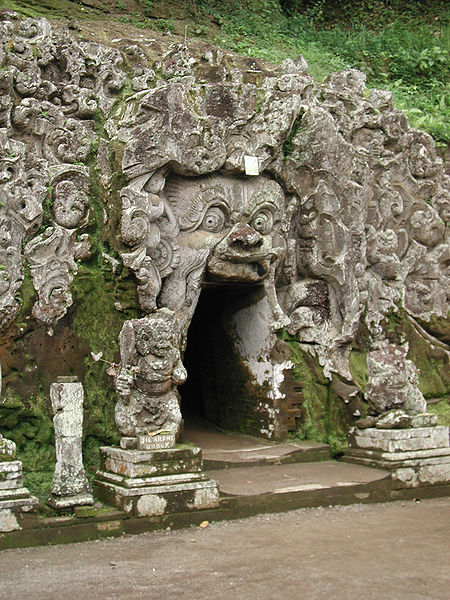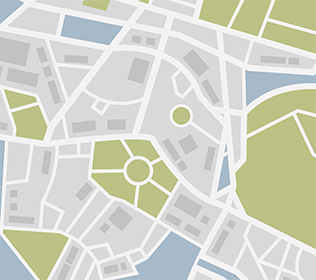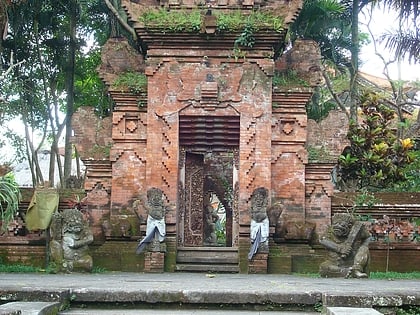Goa Gajah, Ubud
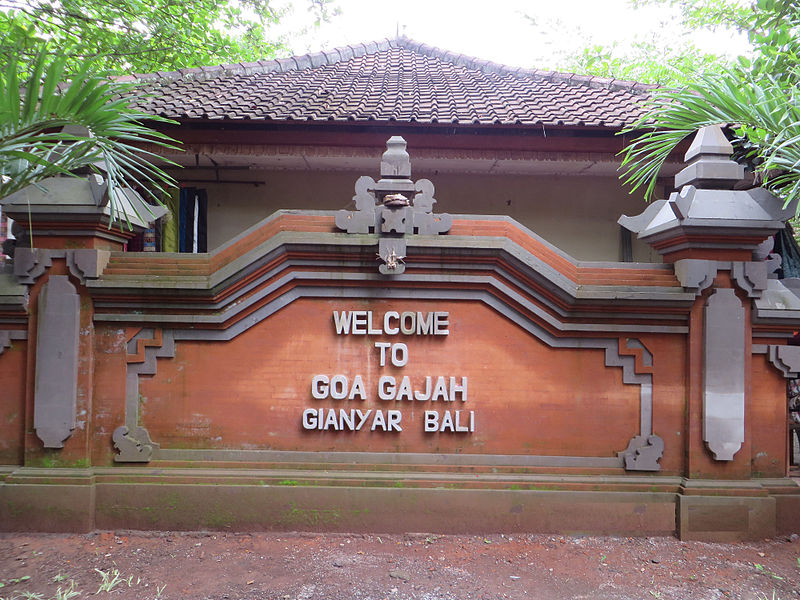
Facts and practical information
Goa Gajah, often referred to as the Elephant Cave, stands as a testament to the rich cultural tapestry of Ubud, Indonesia. This significant Hindu archaeological site, dating back to the 9th century, offers a unique glimpse into the spiritual history of the region. Nestled on the island of Bali, Goa Gajah is a sanctuary that seamlessly blends natural and historical wonders.
The main attraction of Goa Gajah is its intricately carved entrance, a menacing mouth thought to be that of a demon, which leads into a small cave. Inside, visitors will find a space used for meditation and several Hindu and Buddhist statues and relics, reflecting the religious syncretism that is characteristic of Balinese culture. The site is also adorned with various bathing pools and fountains, which are believed to hold cleansing properties.
Beyond its spiritual significance, Goa Gajah is surrounded by lush greenery and picturesque rice fields, allowing tourists to experience the tranquility and beauty of the Balinese landscape. The complex is relatively compact, and visitors can explore it thoroughly within an hour, making it a perfect addition to any itinerary.
To make the most of the visit, it is recommended to hire a local guide who can provide insights into the historical context and symbolism of the carvings and structures within the complex. As with many religious sites, respectful attire is required; this means covering shoulders and legs before entering.
Jl. Raya Goa GajahUbud 80581
Goa Gajah – popular in the area (distance from the attraction)
Nearby attractions include: Ubud Palace, Museum Rudana, Main Temple, Puri Saraswati Bungalows.
Frequently Asked Questions (FAQ)
When is Goa Gajah open?
- Monday 8 am - 5 pm
- Tuesday 8 am - 5 pm
- Wednesday 8 am - 5 pm
- Thursday 8 am - 5 pm
- Friday 8 am - 5 pm
- Saturday 8 am - 5 pm
- Sunday 8 am - 5 pm

